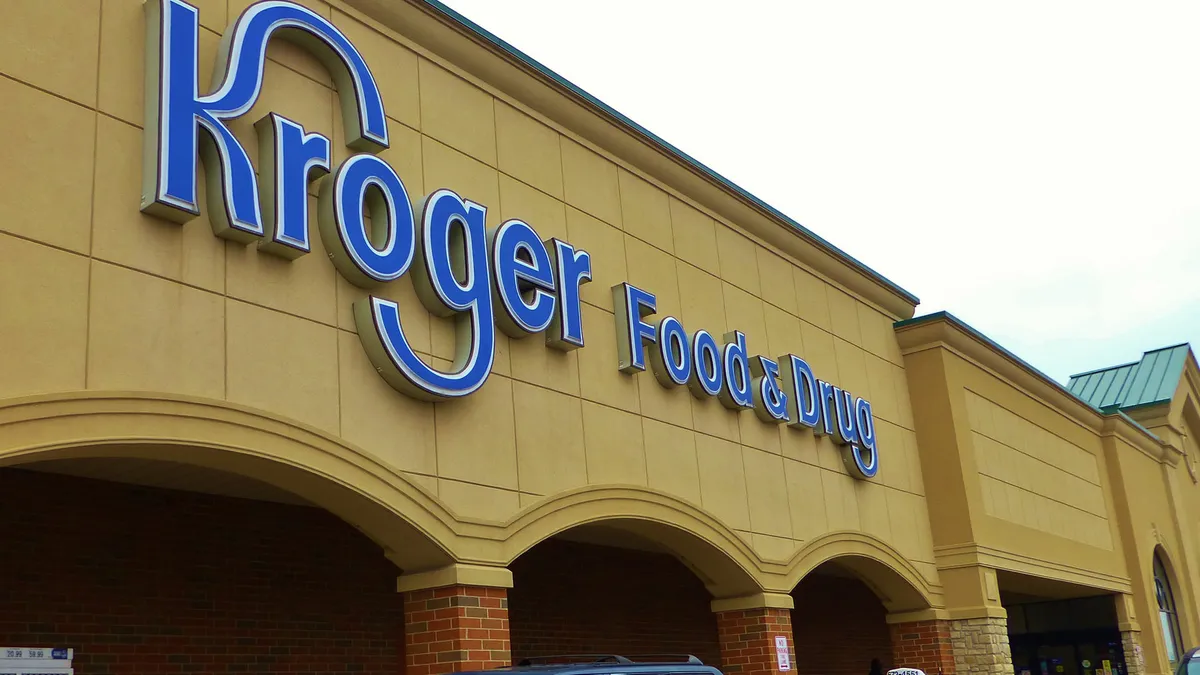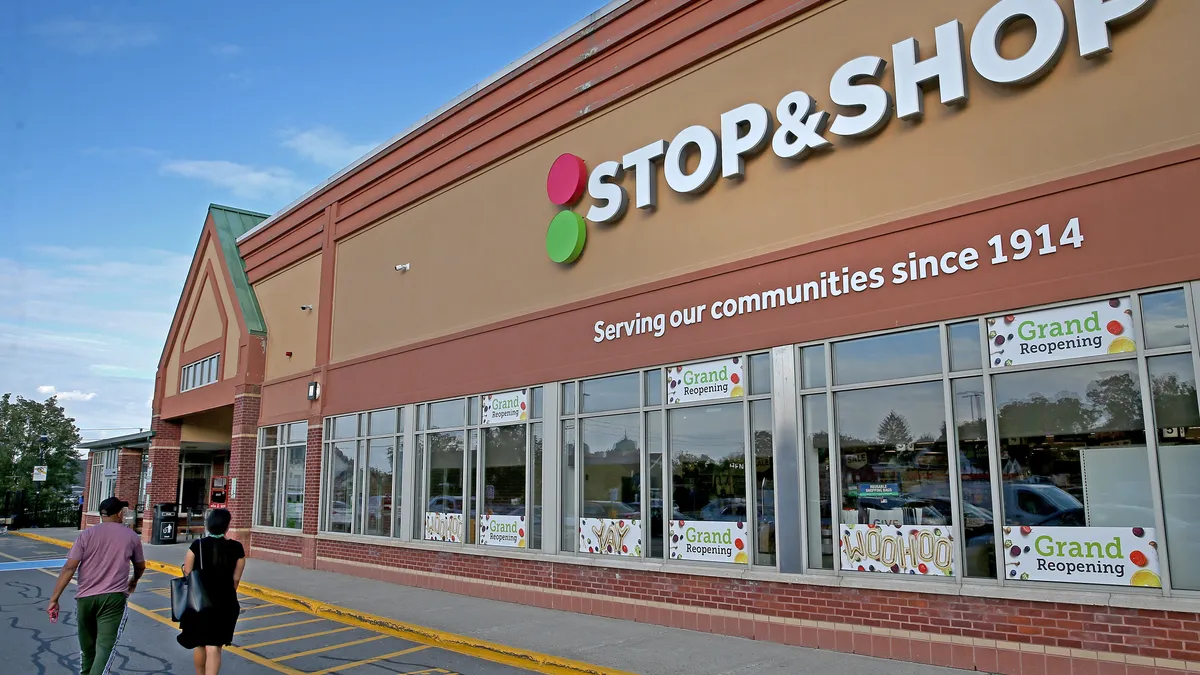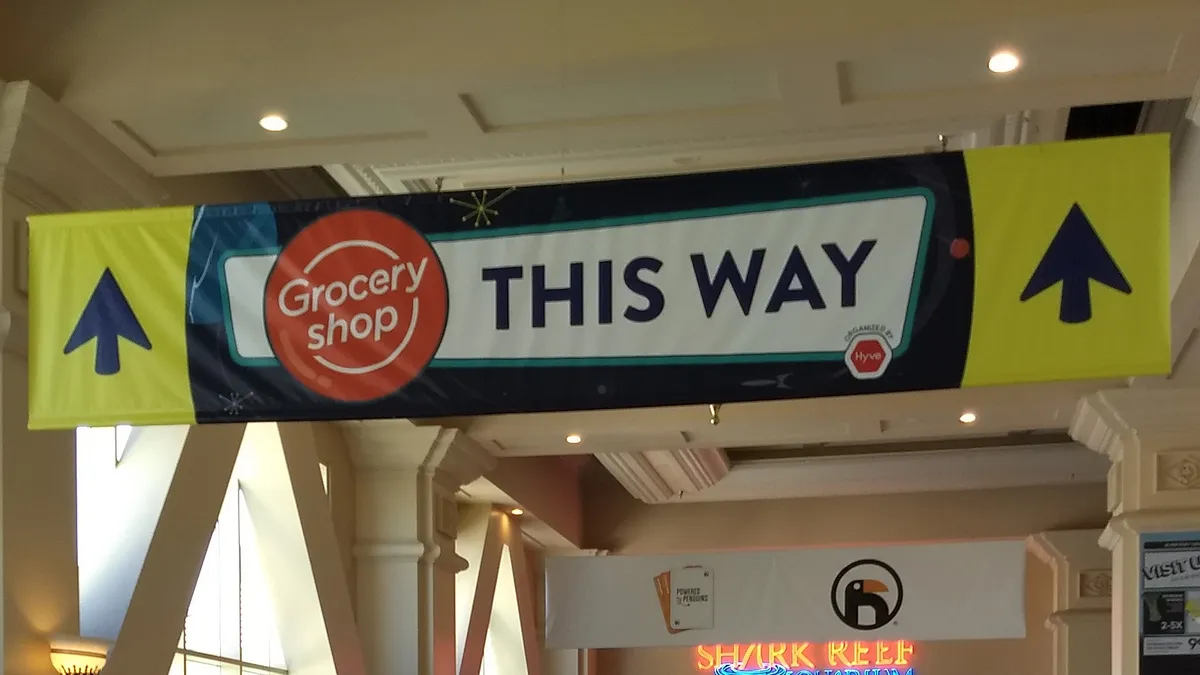Dive Brief:
- Kroger has named Mike Donnelly, currently executive vice president of merchandising, as its new chief operating officer, according to a company release. The move will take effect on November 1, and is part of the company’s Restock Kroger Plan.
- The company also announced that Fred Morganthall, executive vice president of retail operations and the former president of Harris Teeter, will retire at the end of November after 44 years in the food industry.
- "Kroger is fortunate to have a leadership team that combines deep experience with creative new talent as we strategically reposition the company through our Restock Kroger Plan," Rodney McMullen, Kroger's chairman and CEO, said in the release.
Dive Insight:
One of Kroger’s greatest strengths is the experience and skill of its executive team. Headed by chief executive Rodney McMullen, who has been with the company for nearly four decades, Kroger’s top executives — Mike Schlotman, Chris Hjelm and Mike Donnelly — have more than one hundred years of combined experience with the retailer.
By moving Donnelly into a COO role that combines his oversight of merchandising with operations — currently overseen by the soon-to-retire Fred Morganthall, who guided Harris Teeter through more than a decade of growth before it was bought by Kroger in 2013 — Kroger is consolidating power among its trusted top chiefs.
Beginning his career with Fry’s Food Stores in California and steadily advancing through the company ranks, including a four-year stint as the president of Kroger’s Ralphs banner, Donnelly has seen Kroger through many prosperous years. Now, he and the team face the greatest challenge of their careers in keeping Kroger competitive against threats from discounters, Walmart and, of course, Amazon.
Kroger hopes to win this battle with data. It’s data, after all, that helped Kroger stay ahead of traditional grocers on its way to years of consecutive comp-store sales increases. And the retailer hopes that this data will allow it to price, merchandise and promote its products more effectively through its Restock Kroger Plan.
Space optimization, for instance, is something Kroger has been doing for the past few years. Now, the company wants to deepen its use of data to arrange products for maximum impact at the individual store level. If a store has a lot of pet owners or pasta lovers, the company will quickly rearrange its shelves to accommodate that. It also wants to bring optimization capabilities to more stores — from 6% of its locations this year to 20% to 30% over the next few years.
During a presentation at Kroger’s annual investors conference earlier this month, Stuart Aitken, CEO of 84.51, said retailer sees 96% of every transaction including what other stores customers shop, what car they drive, whether they use an Android or iPhone, and numerous other metrics.
Data isn’t the only tool in Kroger’s arsenal, of course. It also has a fast-growing online shopping program, ClickList, as well as one of the most robust private label portfolios in the business. The company’s executives have numerous advantages to leverage over the coming years. Whether these advantages can eke out higher profits for Kroger, or whether the company needs to go big with another acquisition, remains to be seen.










